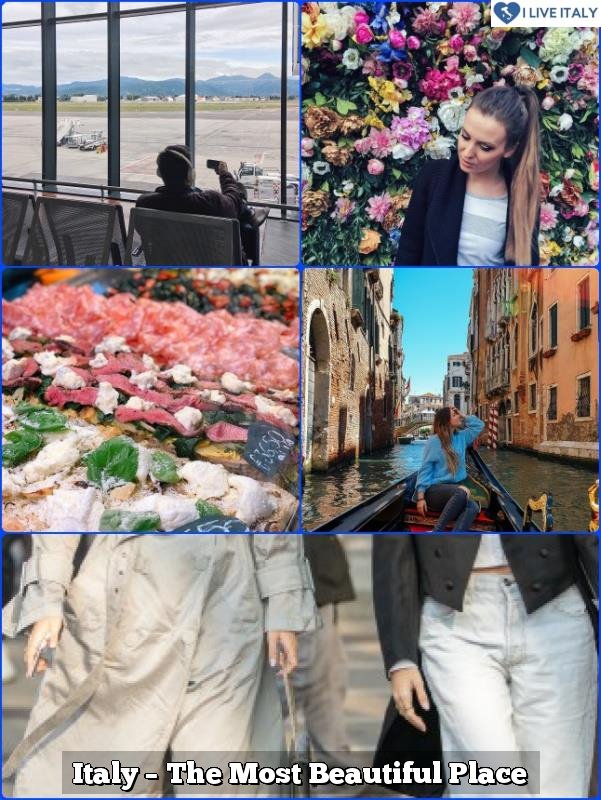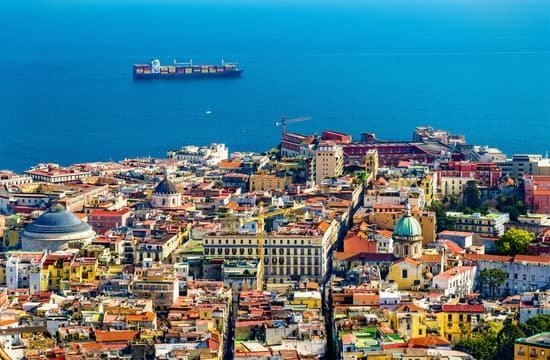Is Italy a safe place to travel to? With its rich history, stunning landscapes, and delicious cuisine, Italy has long been a popular destination for travelers. From the ancient ruins of Rome to the picturesque canals of Venice and the beautiful coastline of Amalfi, there is no shortage of reasons why people flock to this European gem. However, amidst the allure of Italy’s attractions, it’s important to consider safety concerns that may impact your travel experience.
Italy offers a diverse range of experiences for tourists from all over the world. Whether you’re exploring art in Florence, indulging in wine tasting in Tuscany, or soaking up the sun on the Amalfi Coast, there’s something for everyone. However, while planning your dream trip to Italy, it’s essential to be informed about safety precautions and potential risks that could affect your visit.
In this article, we’ll explore various aspects of safety when traveling in Italy. We’ll discuss safety tips for tourists, crime rates in different cities, political and social unrest issues that may impact travelers, as well as natural disaster risks. Additionally, we’ll cover information on local customs and etiquette to respect Italian culture while staying safe.
Lastly, we will provide essential contacts for emergencies and medical services throughout your journey in Italy. So before packing your bags and jetting off to Italy, read on to ensure a safe and enjoyable trip.
Safety Precautions
Italy is a popular travel destination for its rich history, stunning architecture, delicious cuisine, and beautiful landscapes. However, many travelers wonder, “Is Italy a safe place to travel to?” The answer is yes, but it’s important to take certain safety precautions to ensure a smooth and enjoyable trip.
When traveling to Italy, it’s essential to be aware of your surroundings and take steps to protect yourself from potential risks. Here are some tips for traveling safely in Italy:
- Be cautious of pickpockets in crowded tourist areas such as popular landmarks, public transportation, and busy streets. Keep your belongings secure and be mindful of your surroundings.
- Use reputable transportation services and avoid getting into unmarked taxis or accepting rides from strangers.
- Be cautious when enjoying the nightlife in cities like Rome, Milan, and Florence. Stick to well-lit areas and avoid walking alone at night.
- Familiarize yourself with local laws and customs to avoid unintentionally offending locals or getting into trouble with the authorities.
By following these safety precautions, travelers can minimize the risk of encountering any issues while visiting Italy.
It is important for travelers to understand that while Italy is generally a safe place to travel to, no destination is completely free from crime or other risks. Taking these safety precautions can help ensure a safe and enjoyable trip in this beautiful country.
Crime Rates
When considering whether Italy is a safe place to travel to, it’s important to understand the safety situation in different cities. While Italy is generally a safe country for travelers, crime rates can vary significantly from one city to another. The most popular tourist destinations such as Rome, Florence, and Venice have relatively low crime rates compared to some of the larger cities like Milan or Naples.
According to data from the Numbeo Crime Index, which measures the perceived level of crime in a country or city, the overall crime rate in Italy is moderate. Rome, for example, has a higher crime rate compared to Florence but still remains a popular and relatively safe destination for tourists. It’s important for travelers to be aware of their surroundings and take necessary precautions regardless of which city they are visiting.
It’s worth noting that while Italy does have its share of pickpocketing and petty theft especially in crowded tourist areas, violent crimes against tourists are relatively rare. Travelers can minimize the risk by being cautious with their belongings and avoiding displaying valuables in public places. Overall, with some common-sense precautions, visitors can enjoy a safe and enjoyable trip to Italy.
Political and Social Unrest
Italy is known for its rich history, stunning architecture, and delicious cuisine, making it a popular travel destination for tourists from around the world. However, travelers should also be aware of the political and social climate in the country to ensure a safe and enjoyable trip.
Current Political Situation
As with any country, Italy has its own unique political landscape that can impact travelers. It is important to stay informed about any potential political unrest or demonstrations that may be taking place during your visit. Pay attention to local news sources and advisories from your embassy to stay updated on any potential risks.
Social Unrest and Demonstrations
Social unrest can also affect travelers in Italy. While demonstrations are often peaceful, they can sometimes escalate into violence. It is advisable to avoid large gatherings or protests, and to steer clear of any areas where such events may be taking place. Travelers should always prioritize their safety and well-being when navigating through potentially volatile environments.
Impact on Tourist Areas
In some cases, political and social unrest may have an impact on tourist areas. It is not uncommon for demonstrations or strikes to disrupt transportation services or close down attractions temporarily. Travelers should plan ahead and have contingency measures in place in case their intended plans are affected by these events.
While Italy is generally a safe place for tourists, it is essential to remain vigilant and aware of the current political and social climate during your visit. By staying informed and exercising caution, visitors can still enjoy all the beauty and culture that Italy has to offer without being unduly affected by any potential unrest.
Natural Disasters
Italy is a stunning and diverse country that offers a variety of natural landscapes, from the majestic Alps in the North to the stunning coastline in the South. However, it’s important for travelers to be aware of potential natural disasters and take necessary precautions to ensure a safe trip.
One of the main risks in Italy is seismic activity, as the country is located in a seismically active region. Earthquakes can occur, particularly in central and southern Italy. Travelers should familiarize themselves with safety procedures in case of an earthquake and stay up-to-date on local news and advisories.
Another potential natural disaster in Italy is flooding, especially in low-lying areas or regions near rivers and coastal areas. Heavy rainfall can lead to flash floods, so it’s important for travelers to heed any warnings or advisories from local authorities. It’s also advisable to have travel insurance that covers any unexpected disruptions due to natural disasters.
To minimize the impact of natural disasters while traveling in Italy, consider these precautions:
- Research potential risks and weather patterns before your trip
- Stay informed about local advisories and emergency procedures
- Keep important documents and valuable items in waterproof containers
- Have a communication plan with friends or family members back home
- Purchase travel insurance that includes coverage for natural disasters
By staying informed and taking necessary precautions, travelers can enjoy all that Italy has to offer while minimizing the impact of potential natural disasters. While some risks are present, being prepared can contribute to a safe and enjoyable travel experience.
Local Customs and Etiquette
When traveling to Italy, it is important for visitors to familiarize themselves with the local customs and etiquette in order to stay safe and respectful of the culture. One of the most important things to keep in mind is that Italians are known for their warmth and friendliness, but they also value politeness and respect.
Greetings are very important in Italian culture, so it is customary to greet people with a handshake or kiss on the cheek, depending on the level of familiarity.
Another aspect of Italian culture that visitors should be aware of is dining etiquette. Meals are a significant part of Italian culture, and there are certain customs and traditions that should be followed when dining out. For example, it is considered rude to ask for any kind of variation on a dish that is not listed on the menu, as Italian cuisine is deeply rooted in tradition and regional specialties.
Furthermore, travelers should be mindful of their attire when visiting religious sites in Italy. Many churches and other religious landmarks have dress codes that require both men and women to cover their shoulders and knees. By respecting these cultural norms, travelers can ensure a safe and enjoyable experience while exploring Italy’s rich history and architecture.
Health and Medical Services
Italy is known for its rich history, stunning art and architecture, delicious cuisine, and beautiful landscapes, making it a popular travel destination for people all around the world. However, one important aspect to consider when planning a trip to Italy is ensuring the availability of health and medical services to ensure a safe and healthy trip.
When traveling in Italy, it is essential to have travel insurance that covers medical expenses. While Italy has excellent public healthcare facilities, travelers should be aware that they may need to pay for medical services upfront and then claim reimbursement from their insurance provider. Having comprehensive travel insurance can provide peace of mind and financial protection in case of any unexpected medical emergencies.
In addition to travel insurance, it is also recommended to research and locate the nearest hospitals or clinics at your destination in Italy. In major cities like Rome, Florence, or Milan, there are well-equipped hospitals with English-speaking staff that are capable of providing quality medical care.
However, if you plan on exploring rural areas or smaller towns, it’s important to be prepared for limited healthcare facilities and language barriers. Taking these precautions will help ensure that you have access to necessary healthcare services should the need arise during your travels.
Overall, taking proactive steps such as having comprehensive travel insurance coverage and researching healthcare facilities at your destination can help ensure a safe and healthy trip while traveling in Italy. By being prepared for any potential medical situation, travelers can thoroughly enjoy their time exploring this beautiful country without unnecessary worries about their health and well-being.
Emergency Contacts
When traveling to Italy, it is essential to be prepared for any emergencies that may arise. Familiarizing yourself with important numbers and resources can ensure a safe and stress-free trip.
Emergency Services
In case of any emergency, travelers in Italy can dial the European emergency number 112 for police, fire, or medical assistance. This single emergency number makes it easy for travelers to seek help in any situation. It is important to note that this number can be dialed from any phone, including mobile phones, even if they are not connected to a specific network.
Embassy Contacts
It is advisable for travelers to register with their respective embassy upon arrival in Italy. This allows embassies to provide timely assistance and support in case of emergencies such as natural disasters or political unrest. Additionally, knowing the contact information for your embassy can provide peace of mind in unfamiliar situations.
Travel Insurance
Before traveling to Italy, it is highly recommended to purchase travel insurance that covers medical emergencies, trip cancellations, and other unforeseen circumstances. In the event of an emergency, having access to reliable medical services is crucial for a safe and secure trip.
Ensuring that you have access to important numbers and resources can enhance your safety while traveling in Italy. By being well-prepared for potential emergencies, travelers can have peace of mind as they explore all that this beautiful country has to offer.
Conclusion
In conclusion, Italy is generally a safe place to travel to, as long as travelers exercise common sense and follow the safety precautions outlined in this article. While there are certain risks associated with traveling to any destination, including crime rates, political and social unrest, natural disasters, and health concerns, being aware of these potential issues can help travelers prepare and stay safe during their trip to Italy.
One of the most important factors in staying safe while traveling in Italy is to be mindful of one’s surroundings and belongings. By taking simple precautions such as keeping valuables secure, avoiding unsafe areas at night, and being wary of pickpockets in tourist hotspots, visitors can significantly reduce their risk of falling victim to crime.
Additionally, it is essential for travelers to familiarize themselves with local customs and etiquette in order to show respect for the culture and avoid unintentionally causing offense. Understanding the Italian way of life can also enhance the overall travel experience while promoting mutual understanding between locals and visitors.
Ultimately, with adequate preparation and awareness of potential risks, Italy can offer an enriching and safe travel experience for those who choose to visit. So yes indeed, Italy is a safe place to travel to.
Frequently Asked Questions
Is Italy Safe Right Now for Tourists?
Italy currently has safety measures in place to protect tourists, such as enhanced security at major tourist sites and public transportation. However, travelers should always stay informed about current safety conditions and follow local guidelines.
What Part of Italy Is the Safest?
The safest part of Italy for tourists largely depends on their personal preferences and travel plans. Generally, the northern regions of Italy, such as Trentino-Alto Adige and Veneto, are considered safer due to lower crime rates and well-maintained infrastructure.
What Do Americans Need to Enter Italy?
Americans need a valid passport to enter Italy for short stays (up to 90 days) for tourism or business purposes. There is no need for a visa if the trip meets the criteria for visa-free travel under the Schengen Agreement. However, it’s important to check current requirements before traveling.

I’m a passionate traveler, writer, and Italophile. My fascination with Italy’s history, art, and culture has led me on countless adventures across the Italian landscape. Through “I Live Italy,” I share my love for this extraordinary country and aims to inspire others to explore its boundless beauty.





